Data mining is the process of extracting valuable insights from large data. Over the last few years, it has become an essential asset for organizations seeking a competitive edge. Furthermore, Artificial Intelligence and machine learning are driving significant advancements in the field.
We'll dive deeper into the comparison of the best data mining tools and software below, but first, take a look at this summary table:
| Tool | Best for | Pricing |
|---|---|---|
| ZenRows | Mining unstructured data | 1,000 free API credits and paid plans starting at $49/mo |
| Pentaho Data Integration | Extracting, transforming, and loading data | Open-source and free to use |
| Statistical Analysis System | Mining data in SQL | 14-day free trial, then charges per SAS unit |
| IBM Cognos | Business data mining projects | 30-day free trial and paid plans starting at $40/user/mo |
| Levity | No-code data mining | 30-day free trial, then paid plans start at $49/mo |
| Teradata | Large-scale data mining projects | Consumption-based or blended pricing |
| Apache Mahout | Low-budget data mining projects | Free and open-source |
| Board | Data mining through simulation | Free demo and undisclosed pricing |
| Analytic Solver | Data mining in Excel | 15-day free trial and different licensing options |
| Sisense | Mining data from social media platforms | Free trial and undisclosed pricing plans |
What Are Data Mining Tools?
Data mining tools are software applications that allow users to extract, analyze, and transform data from various sources. They use statistical and machine learning algorithms to analyze data and identify patterns, trends, and relationships. These tools gain insights from structured and unstructured data, including text, images, and video.
Now, let's see more about the different types of data mining software!
What Are the Types of Data Mining Tools?
The four major types of data mining tools are as follows:
- Statistical analysis tools: They use regression, correlation and clustering analysis to identify trends, patterns, and relations within datasets.
- Machine learning tools: ML algorithms for analyzing data can help with predictive modeling, classification, and clustering.
- Text mining tools: These applications use natural language processing techniques to extract insights from unstructured text data.
- Social media analytics tools: Such software uses sentiment analysis and other techniques on social media data, like posts, tweets, and comments, to extract insights.
These and other data mining tool types are invaluable for businesses and organizations in handling large datasets. Now, let's take a look at the most reliable and versatile options on the market.
Best Data Mining Tools
Here is an overview of the best data mining tools and their strong sides and applications. Let's dive in!
1. ZenRows: Best Unstructured Data Mining Tool
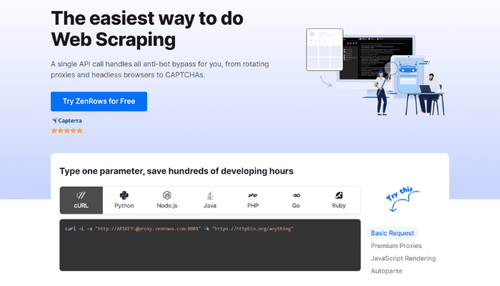
ZenRows is a web scraping API that can handle mining large amounts of unstructured data in a convenient HTML format. It offers advanced anti-bot bypass features, like rotating proxies and firewall bypass, to ensure the success of the scraping process. You can easily integrate it with any programming language your project is based on.
👍 Pros:
- Wide range of anti-bot bypass features.
- Geo-location.
- 24/7 support by experienced developers.
- Auto-parsing to get structured data in JSON from popular websites.
👎 Cons:
- Technical knowledge required to use.
💰 Pricing:
- 1,000 free API credits.
- Paid plans start at $49/month.
2. Pentaho Data Integration: Best ETL Tool for Data Mining
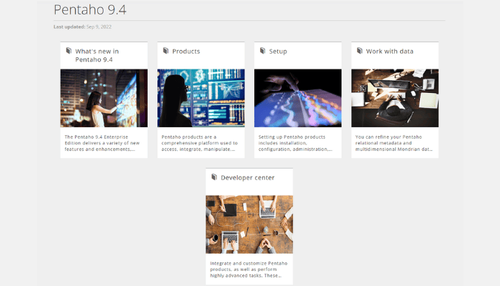
Pentaho Data Integration, or Kettle, is a powerful open-source tool that enables businesses to extract, transform, and load (ETL) data from multiple sources. Its user-friendly interface for designing workflows makes creating, testing, and executing data integration jobs quick and easy.
👍 Pros:
- It supports a wide range of data sources.
- The source code is customizable to meet specific needs.
- Large community of users who offer support, documentation, and tutorials.
- It allows integration with R and statistical packages.
👎 Cons:
- It requires technical experience.
- Occasional data inconsistencies.
💰 Pricing:
- Open-source and free to use.
3. Statistical Analysis System: Best SQL Data Mining Tool
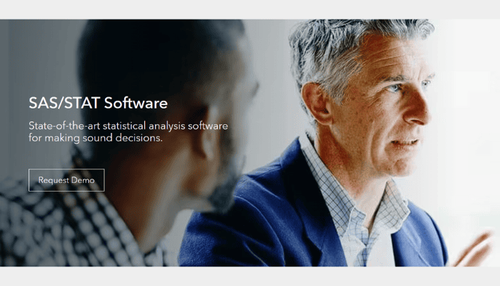
Statistical Analysis System (SAS) is a software suite with a range of tools for data analysis, management, and mining. Its mining techniques include clustering, regression analysis, decision trees, neural networks, and association analysis. It finds application in various industries to aid decision-making processes, like healthcare, finance, and government.
👍 Pros:
- Wide range of statistical techniques.
- Powerful data management capabilities.
- User-friendly interface.
- Reliable and consistent results.
👎 Cons:
- Limited customization.
- Steep learning curve.
💰 Pricing:
- 14-day free trial.
- Charge per SAS Unit starts at $0.55/unit/hour.
4. IBM Cognos: Best Business Intelligence Tool in Data Mining
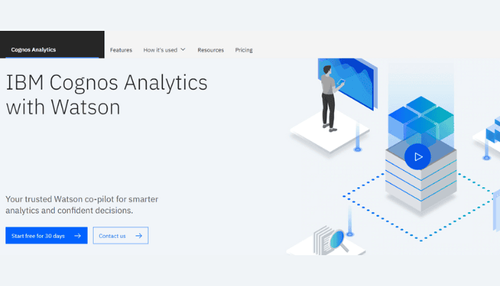
IBM Cognos is a business intelligence and analytics software. It offers a wide range of tools for analysis and data reporting to help organizations gain insights into their operations and improve decision-making processes. It also has advanced data mining features, like decision trees, neural networks, association rules, and clustering.
👍 Pros:
- Intuitive and easy-to-use interface.
- Powerful analytics tools.
- Highly scalable up and down.
- Customizable to address specific needs.
👎 Cons:
- Some advanced features require specialized training.
- Too costly for smaller organizations.
💰 Pricing:
- 30-day free trial.
- Paid plans start at $40/user/month.
5. Levity: Best No-code Data Mining Tool
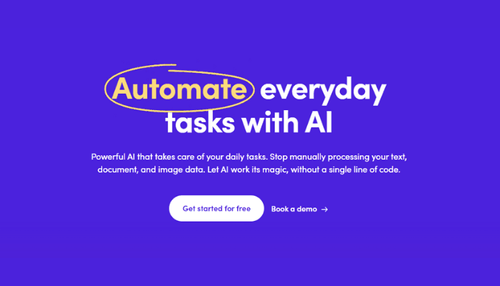
Levity is a cloud-based platform developed to make data mining and analysis more accessible to non-experts. It allows users to explore, visualize, and model large datasets from various data types, including text and images. Levity automates most processes and uses ML algorithms to find and correct errors in the data.
👍 Pros:
- Easy to use, with no coding experience required.
- It supports a wide range of data types.
- Customizable visualization and dashboard options.
- It provides machine learning algorithms to build predictive models.
👎 Cons:
- Relatively new to the market, so there's room for improvement.
💰 Pricing:
- 30-day free trial.
- Paid plans start at $49/month.
6. Teradata: Best Data Mining Tool for Large-scale Projects
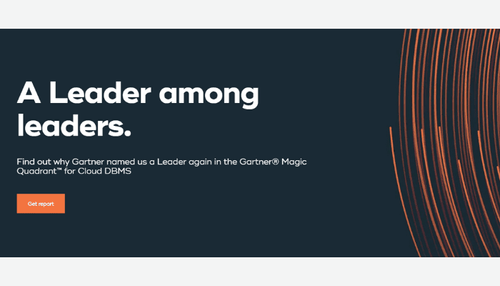
Teradata is a warehousing and analytics platform that enables data mining at scale. It's a relational database management system designed to handle massive amounts of data and support complex mining operations. It's also highly scalable and can process large datasets. Not only that, but the mining tasks can be performed in parallel to improve processing times and efficiency.
👍 Pros:
- Suitable for big data analytics and mining operations.
- It supports advanced analytics functions, like machine learning.
- It integrates flawlessly with other data mining and analytics tools.
- Data safety and recovery features.
👎 Cons:
- Complex setup.
- Some problems when handling unstructured data.
💰 Pricing:
- Consumption-based or blended pricing.
7. Apache Mahout: Best Open-source Data Mining Tool
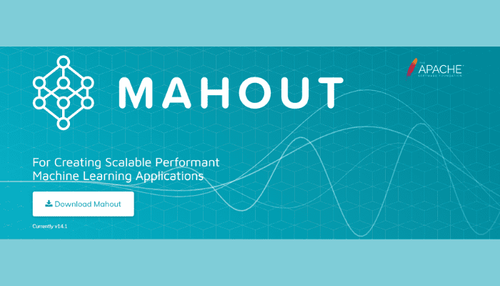
Apache Mahout is an open-source framework for building scalable machine-learning algorithms and data mining systems. The platform supports distributed computing, diverse data formats and sources, and several programming languages, including Python and Java. Furthermore, it offers a wide range of algorithms, like clustering and classification.
👍 Pros:
- Extensive library of ML algorithms.
- User-friendly interface.
- Highly scalable.
- Data preprocessing features.
👎 Cons:
- Complex setup and configuration.
- Occasionally slow processing.
💰 Pricing:
- Free and open-source.
8. Board: Best Data Mining Simulation Tool
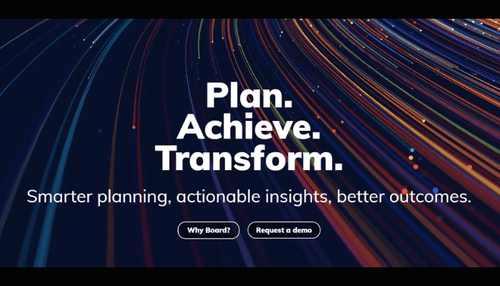
Board is a business intelligence and performance management platform that offers robust data mining features. It also has reliable predictive analytics and simulation tools, as well as data cleansing and transformation features. Board makes collaboration and sharing results within the organization very easy and convenient.
👍 Pros:
- User-friendly interface.
- It supports integration with various data sources.
- Customizable to meet specific needs.
- Good documentation and learning resources.
👎 Cons:
- Limited scalability.
- The learning curve can be steep for users without much technical experience.
💰 Pricing:
- Free demo available.
- Undisclosed pricing.
9. Analytic Solver: Best Tool for Data Mining in Excel
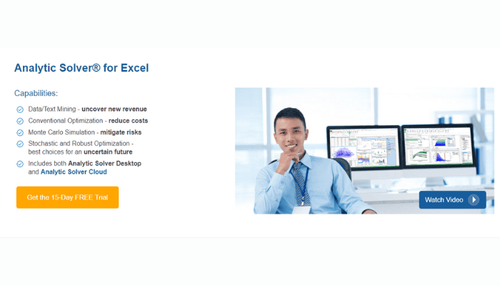
Analytic Solver is one of the best data mining software tools with advanced analytics and optimization features for data-driven decision-making. It's designed to integrate with Excel effortlessly and be used even by non-technical users. It can handle large amounts of data thanks to its ML algorithms and statistical analysis, and simulation tools.
👍 Pros:
- Highly customizable.
- It handles multiple objectives and variables in a problem.
- Many learning materials to get you started.
- Reliable customer service.
👎 Cons:
- Limited visualization capabilities.
- Relatively slow data processing.
💰 Pricing:
- 15-day free trial.
- Different licensing options.
10. Sisense: Best Social Media Data Mining Tool
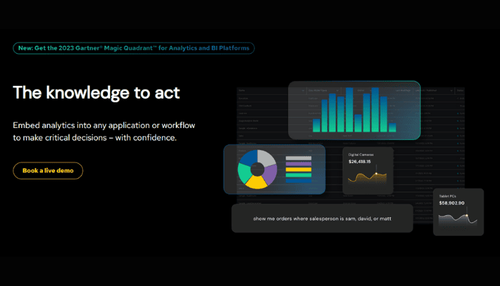
Sisense is a business intelligence and data analytics platform with powerful web data mining tools. With it, users can easily connect to a variety of data sources, including social media, databases, spreadsheets, and cloud-based applications. It also has great features for catchy data visualizations.
👍 Pros:
- Easy-to-use no-code interface.
- Wide range of integration options.
- Customizable dashboards.
- Data unification and mash-ups.
👎 Cons:
- Difficult to share dashboards with team members.
- Issues with using data cubes.
💰 Pricing:
- Free trial.
- Undisclosed pricing plans.
Conclusion
Data mining tools are essential for organizations looking to gain valuable insights from data to make informed decisions. The best depends entirely on your project, technical skills, and budget. However, here are our top reliable and robust suggestions:
- ZenRows: Best for mining unstructured data.
- Levity: Best for no-code mining.
- Apache Mahout: Best open-source data mining tool.
Frequent Questions
What Are the Five Major Types of Data Mining Tools?
There are various types of data mining tools, but here are the five major ones:
- Clustering analysis tools.
- Classification analysis tools.
- Regression analysis tools.
- Association rule mining analysis tools.
- Text mining tools.
What Are the Three Types Of Data Mining?
The three types of data mining are as follows:
- Descriptive data mining.
- Predictive data mining.
- Prescriptive data mining.
What Are Some Data Mining Tools?
Some of the best tools used in data mining available on the market are the following:
- ZenRows.
- Statistical Analysis System.
- Teradata.
Did you find the content helpful? Spread the word and share it on Twitter, or LinkedIn.